Multiverse 2.357
paused to apply patchesWe talked about Google Search in the previous post on the topic of search engines, but now we’re going to shift gears and take a look at some search engines specialized for searching the Internet of Things (IoT). The 800 pound gorilla in the space is Shodan, that lets users search the Internet for devices by category, protocol and more. Shodan is integrated with network discovery and exploit tools, as well as web browsers.
Common searches might be searching across the Internet for webcams, traffic signals, industrial control systems, specific services running, or devices with default passwords. Results tend to have addresses, hostnames, open ports and other details.
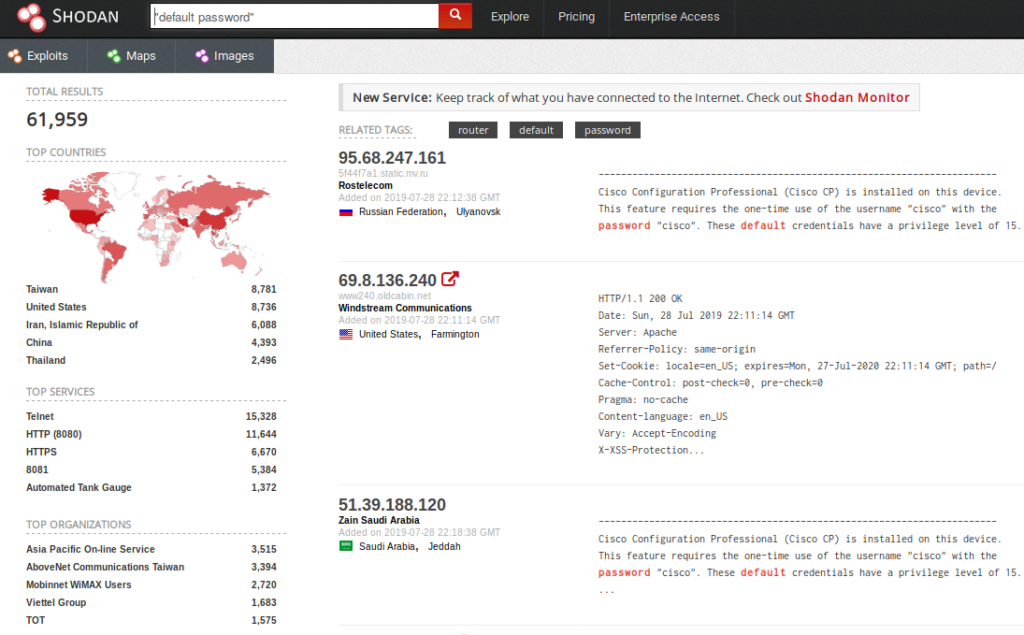
Shown above is the first three results for a search for “default password” that returned 16,959 matches. The result set can be refined by choosing country, services, etc. from the menu in the left column. As you can see, the relevant information is displayed about each device and the software running on it, along with unusual things noted.
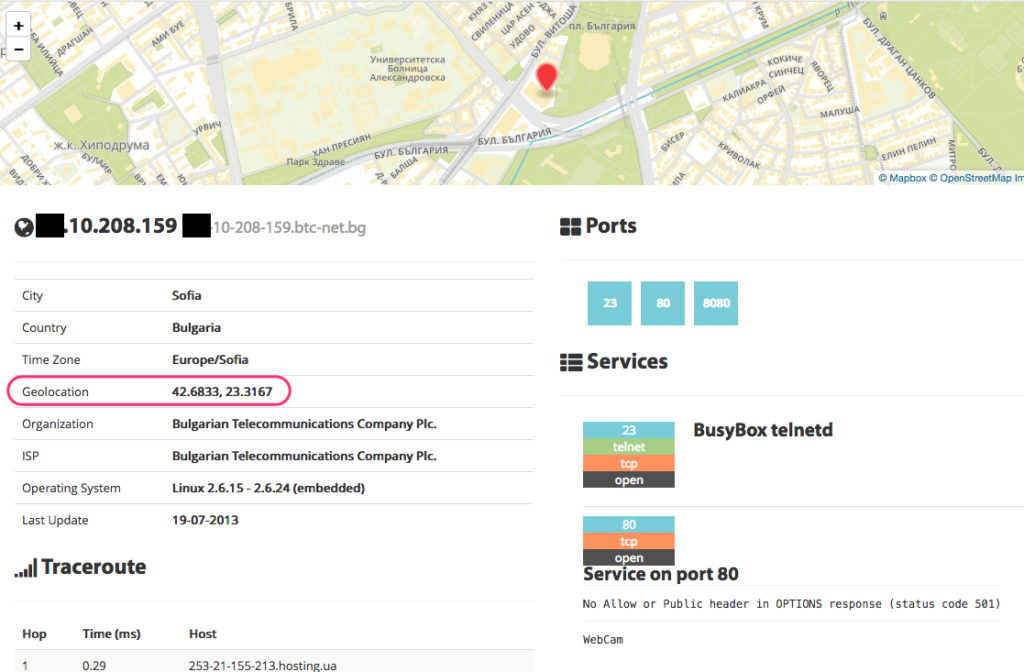
If we click on one of the results we navigate to a detail page (shown above) for that particular device. It shows the location of that device on a map (below) along with the GPS coordinates. It also shows us the open ports, along with relevant information about the services listening on those ports.
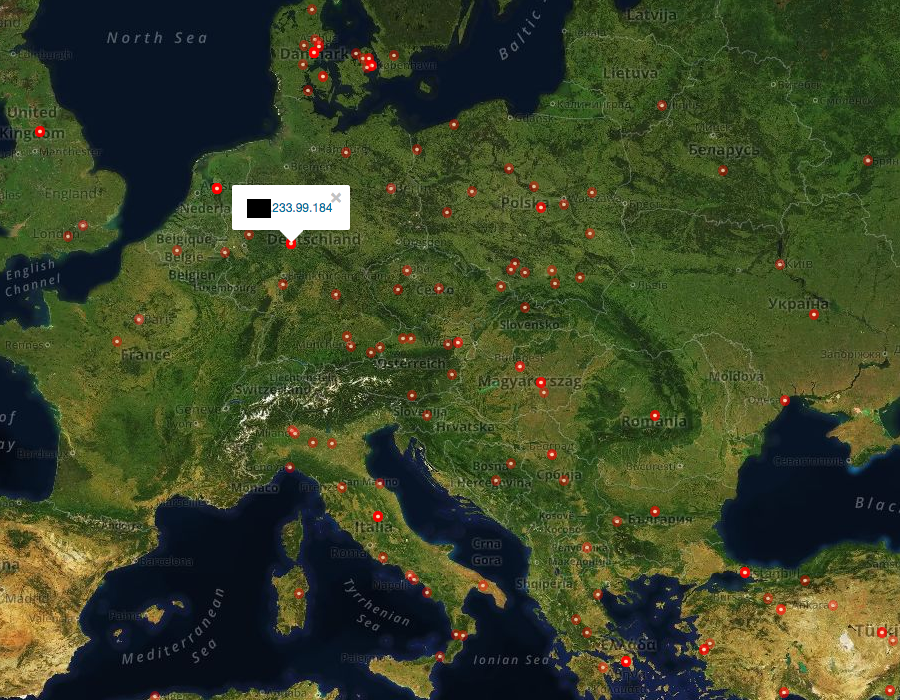
Shodan can show us entire populations of devices – anything from a model of smart TV to routers with a certain firmware version. Alerts can be setup to create a monitoring system. You might want to check Shodan after installing a new networked device.
Shodan can be installed locally, and can be used programmatically via the API. Heavy users can use the API to script common searches for specific devices or ports to great effect. You probably don’t want your insecure web cams, baby monitors or smart TVs showing up in some of these searches, so always check to ensure that you’ve taken reasonable precautions like changing default passwords.
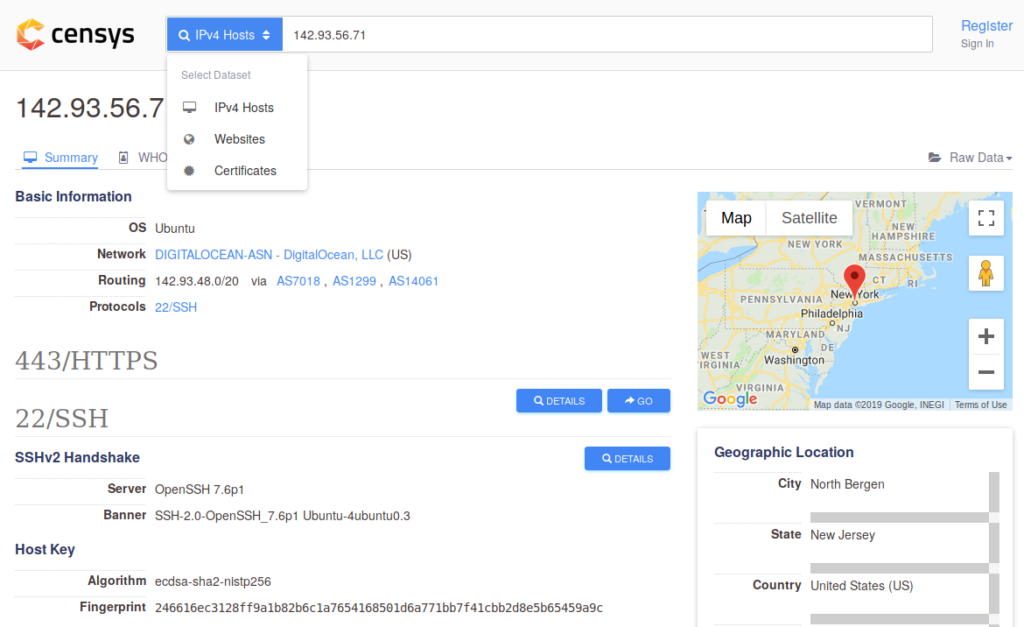
Perhaps the leading competitor is Censys, that has a similar offering. They scan the Internet and organize their findings in a way that is easy to navigate and drill down for details. They also have a full Restful API and are widely used by enterprise customers.
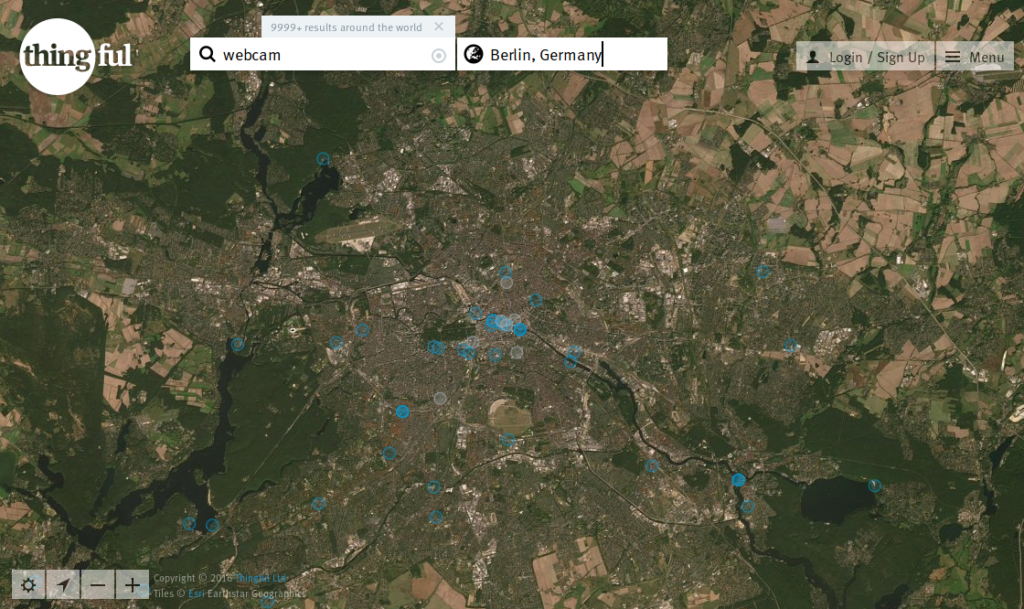
Another competitor is Thingful, whose specialties include working on locating connected vehicles. Of course they’re connected but they are often moving around, so this solution sounds ideal for operators of fleets of taxis or long-haul trucks.
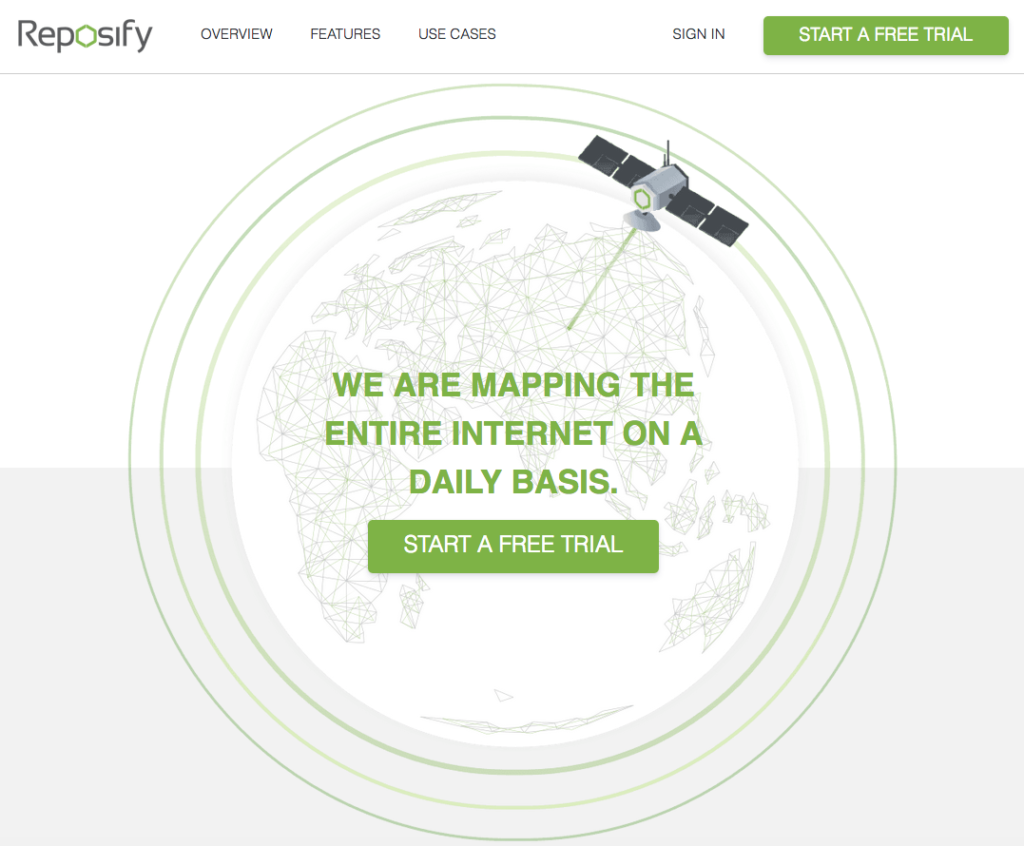
Then there is Reposify, a company that aims to serve the corporate market for geographically diverse firms that want to monitor their public-facing attack surface. They too offer a robust API and scan the Internet constantly.
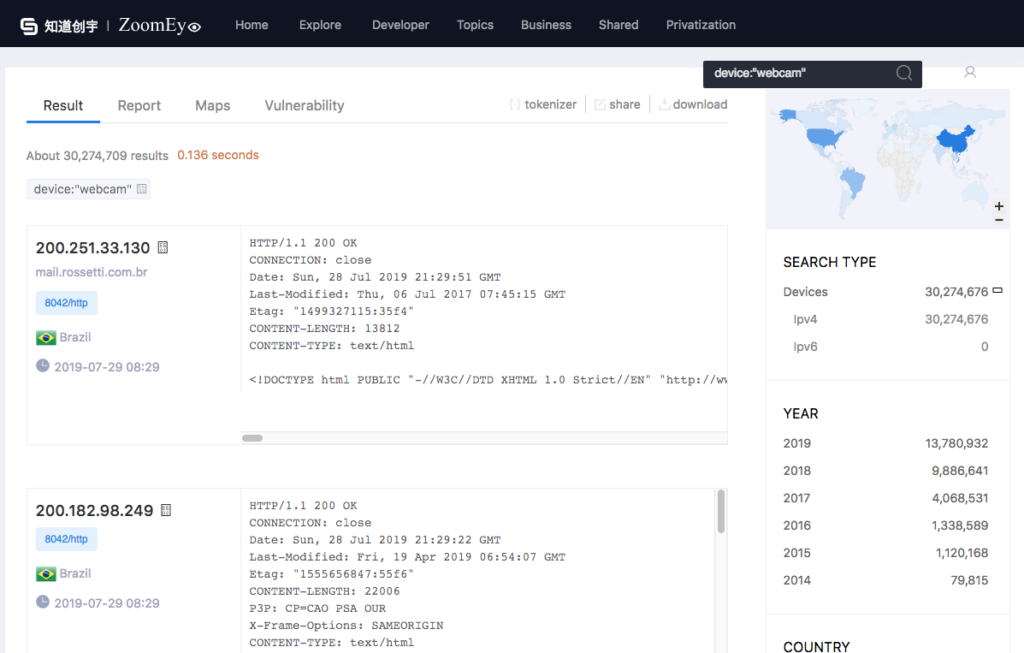
Another IoT search service is called ZoomEye that seems to offer very much the same feature set that Shodan does including detailed search queries and a rich API.
As you can see there are quite a few services that scan the Internet looking for connected devices, certain services and ports, specific devices or manufacturers and much more. I’m sure there are others that we did not include as this is a popular and growing space for search. Next, we’re going to take a look at decentralized search engines – stay tuned!